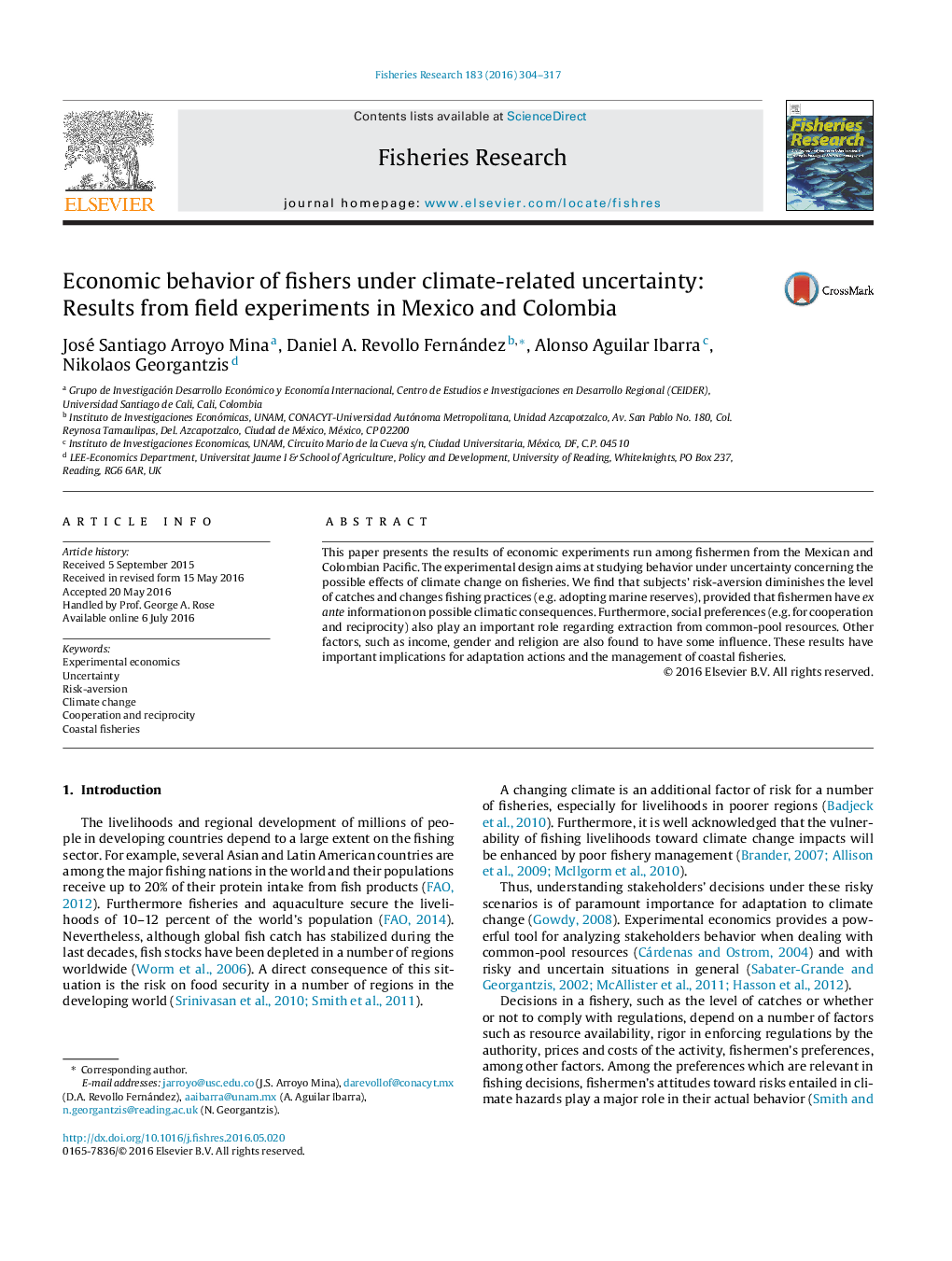| Article ID | Journal | Published Year | Pages | File Type |
|---|---|---|---|---|
| 6385196 | Fisheries Research | 2016 | 14 Pages |
Abstract
This paper presents the results of economic experiments run among fishermen from the Mexican and Colombian Pacific. The experimental design aims at studying behavior under uncertainty concerning the possible effects of climate change on fisheries. We find that subjects' risk-aversion diminishes the level of catches and changes fishing practices (e.g. adopting marine reserves), provided that fishermen have ex ante information on possible climatic consequences. Furthermore, social preferences (e.g. for cooperation and reciprocity) also play an important role regarding extraction from common-pool resources. Other factors, such as income, gender and religion are also found to have some influence. These results have important implications for adaptation actions and the management of coastal fisheries.
Related Topics
Life Sciences
Agricultural and Biological Sciences
Aquatic Science
Authors
José Santiago Arroyo Mina, Daniel A. Revollo Fernández, Alonso Aguilar Ibarra, Nikolaos Georgantzis,
